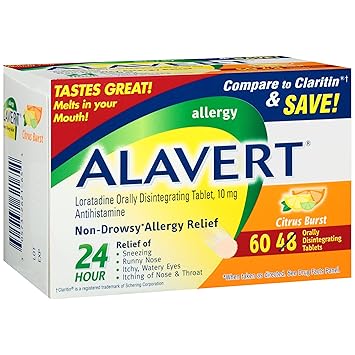8 Vegetables Causing Allergic Reactions
Allergy caused by consuming any food is no more than the body's reaction to one or more substances in that food.
Allergy is an exaggerated immune response of the body to certain substances. People with vegetable allergies have an antibody called IgE. This antibody can be produced suddenly in your body, even if you have previously consumed vegetables without any problems.
A study in Spain called Alergológia 2015 showed that 7.4% of people consulted specialists for pollen, fruit and vegetable allergies.
Symptoms may vary in allergies; these symptoms occur in everyone with different intensity and affect one or more organs of the body. These symptoms may occur when you consume foods that you are allergic, whether natural or processed.
It is important to note that not everyone responds differently to the different components of food. Every human body is different from one another, and what affects one person may not affect another in the same way.
Allergic reactions to plants are usually produced by certain substances or molecules. In this article we will talk about some vegetables that may cause allergic reactions.
8 vegetables that cause allergic reactions
1. Carrots
carrots lined up on table
Believe it or not, some people are allergic to carrots. If you are allergic to pollen, you may also be allergic to carrots.
This is shown as the structural similarity of the components in pollen and carrot. Some proteins in pollen are similar to carrots. Allergic proteins in carrots do not disappear even if cooked.
The most common symptoms of carrot allergy are:
Anaphylaxis (difficulty breathing, low blood pressure and loss of consciousness)
Acceleration of heartbeat
Anxiety
Dizziness
Dizziness
All of these symptoms can lead to coma and in some cases even death. These symptoms occur quickly after eating carrots; therefore, immediate medical attention is vital.
2. Lettuce
Lettuce is the food most associated with lipid transfer protein allergy. The most common type of allergy seen in the consumption of this vegetable is food allergy.
Lettuce also produces anaphylaxis and leaves have different pathogenic bacteria that can cause diseases. Therefore it must be consumed carefully.
Even if you are not allergic to lettuce, you should wash your leaves carefully with water or vinegar before consuming lettuce to thoroughly disinfect the bacteria it carries.
3. Celery
celery standing on table
Celery allergy is a common allergy. Raw or cooked celery can cause skin reactions. The severity of allergy can be as effective as anaphylaxis.
Consuming this vegetable and exposure to ultraviolet radiation can cause the following diseases:
Calcification
Laryngeal edema
Although very detailed research on vegetable allergy has been conducted, there is no comprehensive study on allergy to celery. However, if you observe any symptoms after consuming this food, you should stop consuming it immediately.
4. Spinach
Spinach allergy may be the most common vegetable allergy. This vegetable is rich in histamine chemicals found in the body as hormones and neurotransmitters.
Histamine is secreted in large amounts if there is inflammation in the body and is therefore shown as one of the main causes of allergy.
5. Onions
allergy to vegetables and onions
Onions contain sulfur, a special mineral that improves circulation. However, sulfur is also a mineral that causes allergic reactions.
Symptoms of onion allergy occur immediately and are as follows:
Nausea
Vomiting
Diarrhea
Abdominal cramps
Hives (this symptom can also be observed in case of contact)
Respiratory tract inflammation
Anaphylaxis (in some cases)
6. Garlic
This type of allergy is an observed allergy type, although there are very few recorded cases. So if you are one of the few people who are allergic to garlic, you should be careful.
Although this type of allergy may have very mild symptoms for some people, it can have fatal consequences for others. The most common symptoms of garlic allergy are:
Skin irritation
Swelling of the tongue and, in some cases, trachea
Abdominal pain
Diarrhea
Nausea and vomiting
Anaphylaxis
7. Spices
various spices standing in spoons
Pepper, mustard, curry, cumin and anise can cause allergy to some people. Since these spices are often used in mixtures, it is a little more difficult to diagnose allergy completely. Possible symptoms that may occur in the event of an allergy are:
rhinitis
Asthma (if inhaled)
Skin reactions (contact eczema)
Eye fever or inflammation
If you do not consume these spices on a regular basis and do not know if you have allergies, it is best for you to avoid consuming or consuming trace amounts.
8. Asparagus
Asparagus is a vegetable of the lily family, with onions and garlic. In a study of asparagus allergy, people who come into contact with this vegetable, breathe or swallow have been exposed to the following symptoms:
rhinitis
Bronchial asthma (by inhalation)
Hives (eczema in contact)
Anaphylaxis
If you notice any of these symptoms after consuming this vegetable, you should consult a specialist immediately. So you can prevent the symptoms from getting worse. Vegetable allergy is a type of allergy that you need to be aware of, beware of what you eat and always try to be cautious.
28AXX
Rhinocort Allergy Nasal Spray with Budesonide Allergy Medicine, Non-Drowsy 24 Hour Relief, Prescription Strength Indoor and Outdoor Allergy Relief, Scent-Free and Alcohol-Free, 120 Sprays







